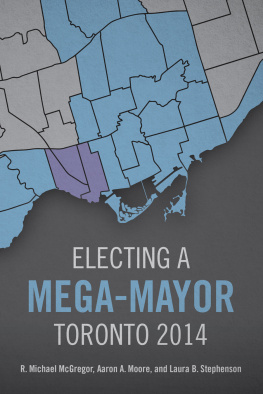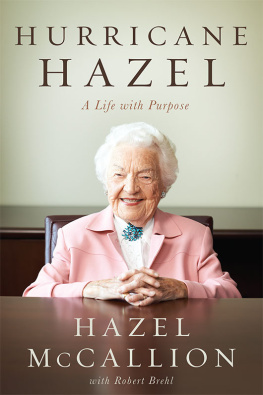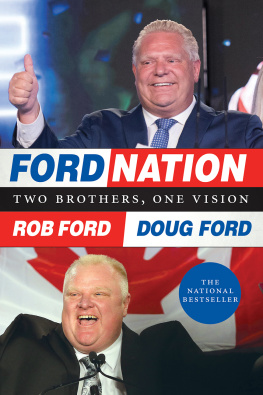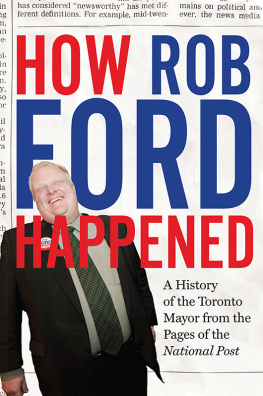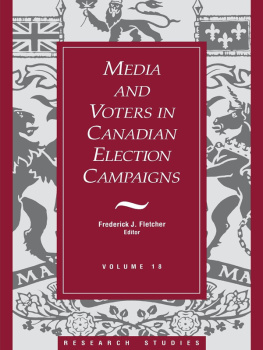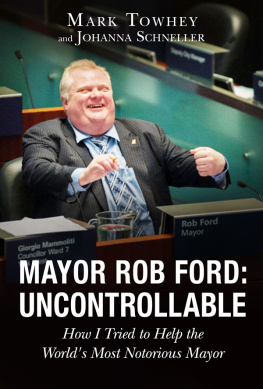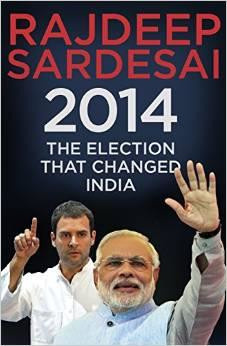
ELECTING A MEGA-MAYOR
Toronto 2014
Electing a Mega-Mayor represents the first-ever comprehensive, survey-based examination of a Canadian mayoral race and provides a unique, detailed account of the 2014 mayoral election in Toronto. After making the case that local elections deserve more attention from scholars of political behaviour, this book offers readers an understanding of Toronto politics at the time of the 2014 election and presents relevant background on the major candidates. It considers the importance that Torontonians attached to policy concerns and identifies the bases of support for the outgoing, scandal-ridden mayor, Rob Ford, and his brother Doug.
In the penultimate chapter, the authors examine how Torontonians viewed their elected officials, and the citys performance, two years after the election. McGregor, Moore, and Stephenson conclude with a reflection on what the analysis of the Toronto 2014 election says about voters in large cities in general and provide a short epilogue addressing the 2018 election results. Written in an accessible style, this is the first book on the politics of Toronto during the Ford era that focuses on the perspective of the voter.
R. MICHAEL MCGREGOR is an assistant professor in the Department of Politics and Public Administration at Ryerson University.
AARON A. MOORE is an associate professor in the Department of Political Science at the University of Winnipeg.
LAURA B. STEPHENSON is a professor in the Department of Political Science at the University of Western Ontario.
Electing a Mega-Mayor
Toronto 2014
R. MICHAEL McGREGOR, AARON A. MOORE, AND LAURA B. STEPHENSON
UNIVERSITY OF TORONTO PRESS
Toronto Buffalo London
University of Toronto Press 2021
Toronto Buffalo London
utorontopress.com
Printed in the U.S.A.
ISBN 978-1-4875-0963-7 (cloth) ISBN 978-1-4875-0966-8 (EPUB)
ISBN 978-1-4875-0964-4 (paper) ISBN 978-1-4875-0965-1 (PDF)
Library and Archives Canada Cataloguing in Publication
Title: Electing a mega-mayor : Toronto 2014 / R. Michael McGregor,
Aaron A. Moore, and Laura B. Stephenson.
Other titles: Toronto 2014
Names: McGregor, R. Michael, author. | Moore, Aaron A., 1979, author. |
Stephenson, Laura Beth, 1976, author.
Description: Includes bibliographical references and index.
Identifiers: Canadiana (print) 2021015621X | Canadiana (ebook)
2021015649X | ISBN 9781487509644 (paper) | ISBN 9781487509637
(cloth) | ISBN 9781487509668 (EPUB) | ISBN 9781487509651 (PDF)
Subjects: LCSH: Mayors Ontario Toronto Election. | LCSH: Local
elections Ontario Toronto. | LCSH: Political candidates Ontario
Toronto. | LCSH: Political campaigns Ontario Toronto. | LCSH: Voting
Ontario Toronto. | LCSH: Toronto (Ont.) Politics and government
21st century.
Classification: LCC JS1789.73 .M34 2021 | DDC 324.9713/541 dc23
University of Toronto Press acknowledges the financial assistance to its publishing program of the Canada Council for the Arts and the Ontario Arts Council, an agency of the Government of Ontario.

Contents
Figures
Tables
Acknowledgments
Projects like this depend upon many factors a compelling real-world situation, academic interest, funding, and teamwork. We are fortunate to have had all of the necessary parts come together to produce this work. We thank scholars at the University of Western Ontario for sparking our interest in municipal politics and the Social Sciences and Humanities Research Council of Canada for funding (Insight Development grant #430-2014-00700). We also benefited from the help of able research assistants, most notably Carla Caruana. Finally, we must also recognize one other crucial element that is needed for any academic project to come to fruition family support. We are forever grateful for the support that our families have provided, for this work and always.
This work is dedicated to our favourite co-authors: Morri, Bridget, and Jason.
ELECTING A MEGA-MAYOR
Toronto 2014
Chapter 1
The Study of Local Elections
The 27th of October, 2014, marked the end of a tumultuous and unprecedented era in Toronto city politics. Although the incumbent mayor, Rob Ford, would formally continue in the role until the end of 2014, John Torys victory effectively and abruptly ended Fords tenure and disrupted a potential Ford municipal dynasty. Though Tory won with less support than his predecessor, his 40.3 per cent of the popular vote was, nonetheless, a clear win over Robs brother Doug (33.7 per cent) and Olivia Chow (23.2 per cent) (, 27 October). The 2014 mayoral race (and the period leading up to it) had captured the attention of Torontonians and the world, a fact reflected not only in the large volume of press coverage devoted to the contest but also in the relatively high voter turnout (54.9 per cent).
Torys victory ended one of the most extraordinary elections in Canadas recent history. During the campaign, which had begun almost a year earlier in January, the incumbent mayor reluctantly took time off to seek treatment for drug and alcohol abuse. In the meantime, over a few months in the summer that largely corresponded with Rob Fords time away from City Council, the Province of Ontario held its own election, the results of which coincided with a sharp fall in support for the early front-runner for the mayoral race, Olivia Chow, and the rise of John Tory, whom polls had suggested was the third-place candidate up until that point. Outside of Toronto, however, the press had little interest in any candidate other than Ford: it focused largely on the antics of the citys crack-smoking mayor though notably, Jon Stewart of The Daily Show fame would endorse Chow (, 9 September).
That the news media focused disproportionately on the more salacious aspects of the campaign is not surprising. After all, Rob Ford regularly disrupted his mayoralty with his scandals and unusual antics. Ford had been elected mayor in 2010 with 47 per cent of the vote, a clear sign of strong support for an anti-establishment candidate who promised to do things differently at City Hall. His closest competitor, George Smitherman, a former provincial cabinet minister, received less than 36 per cent support. Prior to his mayoral run, Rob served as a city councillor (from 2000 to 2010), during which time he established himself as a polarizing personality, one who was known for public drunkenness, inappropriate comments to and about others, and accusations of domestic assault (, 16 July).
Despite his foibles, many Torontonians continued to be attracted to Fords small-c conservative promises, such as to cut city staff, contract out services, reduce taxes, and hire more police officers (, 22 May). Where Ford diverged most from Barry was in his failure to deliver improved services to his marginalized constituents. Nevertheless, Fords continued popularity, despite his admissions of drug use and increasingly erratic behaviour, closely resembled that of Barry, who after a stint in jail for crack possession triumphantly returned to politics and was eventually re-elected as mayor. Barrys success suggested that fears (or hopes) of Fords re-election, despite the tumult of his first term of mayor, were not unfounded.
On many fronts, Fords tenure as mayor was eventful. Beyond revelations of alcohol and drug abuse, he and his brother fought a conflict-of-interest lawsuit, and reports emerged of domestic assault (, 4 December).
Next page
